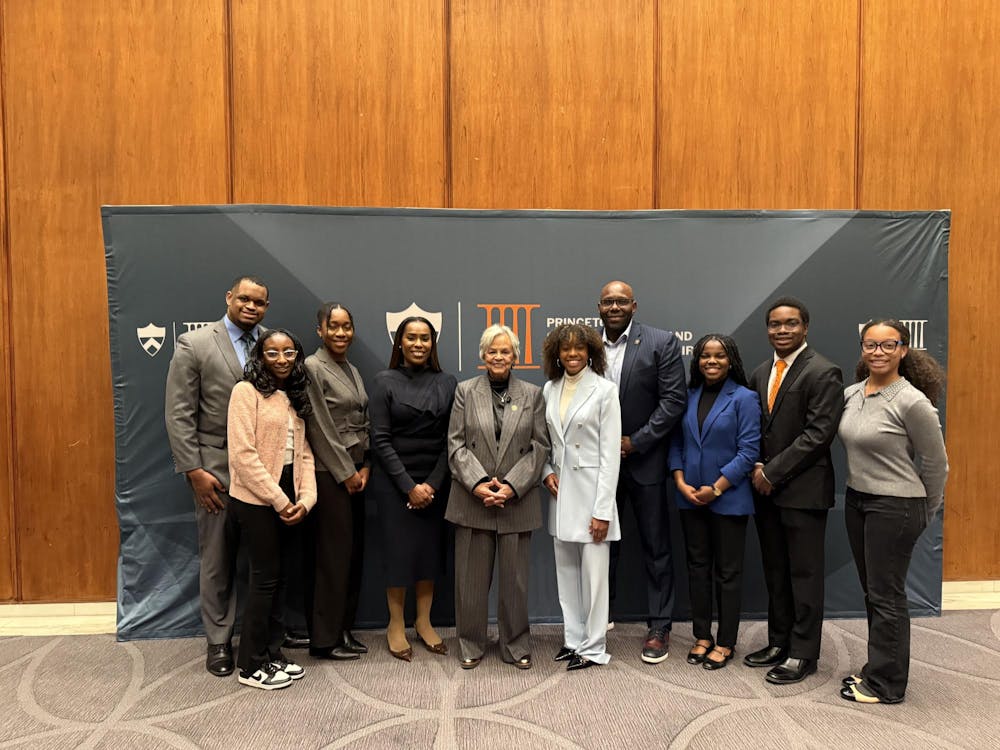Taliban forces withdrew from the Afghan capital of Kabul in the past two days under intense military pressure from the Northern Alliance, which the United States has supported through air bombings and special ground forces.
The Taliban reportedly rushed south to the stronghold city of Kandahar, and yesterday reports said the Taliban was also considering leaving that city to fight a guerrilla war on the southern outskirts of Afghanistan. U.S. officials urged Northern Alliance leaders to maintain discipline in their actions, but they also contended that the capture of Kabul by the northern alliance and its consequences signaled the coming end of the Taliban.
Faculty and students at Princeton with experience in international affairs agreed that the Northern Alliance capture of Kabul represents a major victory for the United States and its allies and makes it more likely that Osama bin Laden and his al-Qaida terrorist network, believed to be responsible for the Sept. 11 attacks in New York and Washington, are taken into custody soon.
"I think that it shows that the contest for Afghanistan is over. That it's only a matter of time before the Northern Alliance and its allies will seize the whole country and that at that point the search for bin Laden becomes very interesting," said Wilson school professor Richard Ullman, who teaches WWS 541: International Politics. "You have no effective place to hide, and if he's still in the country, the chances of his being discovered are great."
Echoing similar sentiments, Wilson School professor Wolfgang Danspeckgruber, who teaches WWS 450: Theory and Practice of International Diplomacy, noted that though Kabul was perceived as the center of power, "under the Taliban, Kandahar was even more important."
Noting that the Northern Alliance took Kabul despite Western pleas not to, Danspeckgruber aired concern that the Northern Alliance presence could exacerbate ethnic tensions with the majority Pashtun population in southern Afghanistan that could spill over into Pakistan.
"The non-Pashtuns are now in Kabul and this seems opposed to the interest of Pakistan," Danspeckgruber said. "I suspect that many in Islamabad may be worried about the potentially dire consequences of Taliban and al-Qaida members simply infiltrating Pakistan southern territory. Pakistan is faced with the critical threat of potential civil unrest."
David Madden '03 who is in Danspeckgruber's class also said the capture of Kabul represented a turning point in the war, but he said he thought America and its allies should look upon the capture cautiously.

"I was cautiously thrilled to hear that Kabul had been taken . . . because it represents a major victory against the Taliban and a huge defeat for religious extremism and terrorism everywhere," Madden said in an e-mail. "I'm cautious because the United Front failed previously at effectively governing Afghanistan, and restoring order both in Kabul and Afghanistan as a whole will be very difficult."
Ullman, Danspeckgruber and Madden all asserted that the United States must encourage the Northern Alliance to maintain order in Afghanistan. They said it is important to try to prevent factional infighting among members of the United Front, a loose alliance of anti-Taliban groups.
The United States must realize that the progress of the war going forward "will very much depend on how the [Northern Alliance] authorities will resist the temptation to now set the rules . . . which not necessarily are in the U.S. or regional interests," Danspeckgruber said.
"I am also afraid that they may not include a broad-based government with power-sharing between northern communities and the dominant ethnic Pashtuns," he said.

"Now the focus of the war must shift to rooting out the al-Qaida network, along with its infamous leader," Madden said. "Finding them, however, could be difficult if U.S. and United Front troops have to go cave to cave to find them. Such actions, while probably necessary, will almost certainly result in American causalities. Americans and their allies need to recognize this though and be prepared for it. It will be a sacrifice we will have to make in order to achieve our stated goals of destroying terrorist networks."







